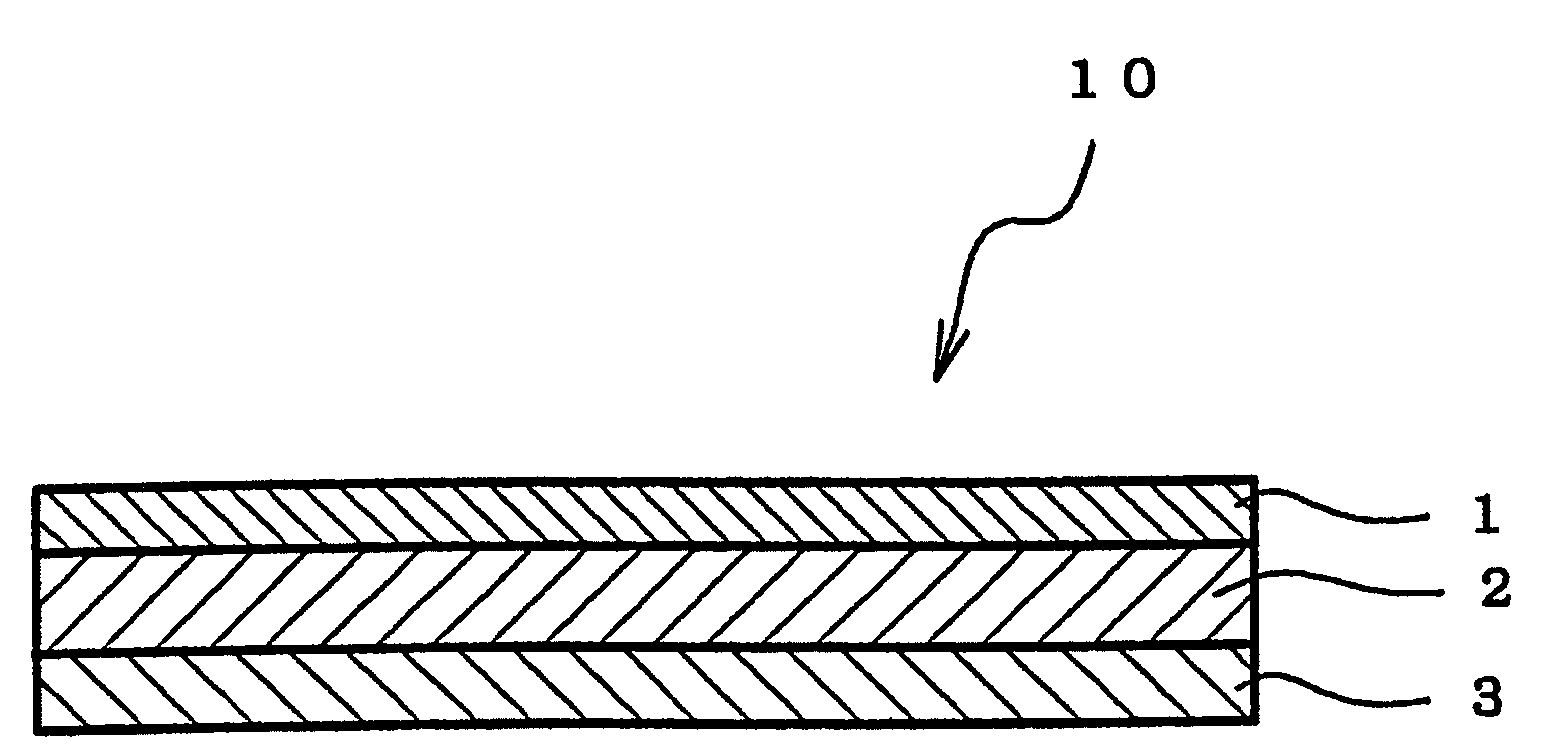Adhesive pharmaceutical preparation containing bisoprolol
a technology of bisoprolol and adhesive, which is applied in the direction of biocide, cardiovascular disorder, drug composition, etc., can solve the problems of low solubility of drugs, incompatibility between pressure-sensitive adhesive characteristics and drug blending, and achieve the effect of increasing the blending amount of bisoprolol and the compatibility of polyisobutylene pressure-sensitive adhesives
- Summary
- Abstract
- Description
- Claims
- Application Information
AI Technical Summary
Benefits of technology
Problems solved by technology
Method used
Image
Examples
examples
[0060]The following describes the invention further illustratively with reference to examples, but these examples do not limit the invention. In this connection, the abbreviations to be used in the examples and the like are as follows.
[0061]PIB-A: PIB pressure-sensitive adhesive (composition: B200 / 6H / P140=34 / 26 / 40)
[0062]PIB-B: PIB pressure-sensitive adhesive (composition: B150 / B12 / P100=30 / 30 / 40)
[0063]B12: Oppanol® B12 (mfd. by BASF) polyisobutylene, viscosity average molecular weight of 55,000
[0064]B150: Oppanol® B150 (mfd. by BASF) polyisobutylene, viscosity average molecular weight of 2,600,000
[0065]B200: Oppanol® B200 (mfd. by BASF) polyisobutylene, viscosity average molecular weight of 4,000,000
[0066]6H: HIMOL 6H (mfd. by Nippon Petrochemicals) polyisobutylene, viscosity average molecular weight of 60,000
[0067]P100: ARKON® P100 (mfd. by Arakawa Chemical Industries) tackifier, alicyclic saturated hydrocarbon resin, softening point of 100° C.
[0068]P140: ARKON® P140 (mfd. by Arakaw...
##ventive examples 1 to 8
Inventive Examples 1 to 8 and Comparative Examples 1 to 8
[0072]A viscous solution was prepared by dissolving each composition for forming pressure-sensitive adhesive layer formulated in accordance with Table 1 in toluene. The solution thus obtained was coated on a silicone release treatment-applied liner (75 μm) made of polyethylene terephthalate (PET) to yield a thickness of 80 μm after drying, and a pressure-sensitive adhesive layer was formed by drying the same in a hot air circulation dryer to thereby remove toluene. Subsequently, a PET film having a thickness of 25 μm as a backing was applied on the pressure-sensitive adhesive layer to obtain a sheet-shaped adhesive pharmaceutical preparation.
[0073]
TABLE 1Formulation of composition for formingpressure-sensitive adhesive layerDrugSolubilizing agentOther components(content; wt %)(content; wt %)(content; wt %)Inv.Free base of2-Octyl-1-dodecanolPIB-A (83)Ex. 1bisoprolol (2)(5)IPM (10)Inv.Free base of2-Hexyl-1-decanolPIB-A (83)Ex. 2...
PUM
| Property | Measurement | Unit |
|---|---|---|
| softening point | aaaaa | aaaaa |
| softening point | aaaaa | aaaaa |
| softening point | aaaaa | aaaaa |
Abstract
Description
Claims
Application Information
 Login to View More
Login to View More - R&D
- Intellectual Property
- Life Sciences
- Materials
- Tech Scout
- Unparalleled Data Quality
- Higher Quality Content
- 60% Fewer Hallucinations
Browse by: Latest US Patents, China's latest patents, Technical Efficacy Thesaurus, Application Domain, Technology Topic, Popular Technical Reports.
© 2025 PatSnap. All rights reserved.Legal|Privacy policy|Modern Slavery Act Transparency Statement|Sitemap|About US| Contact US: help@patsnap.com


